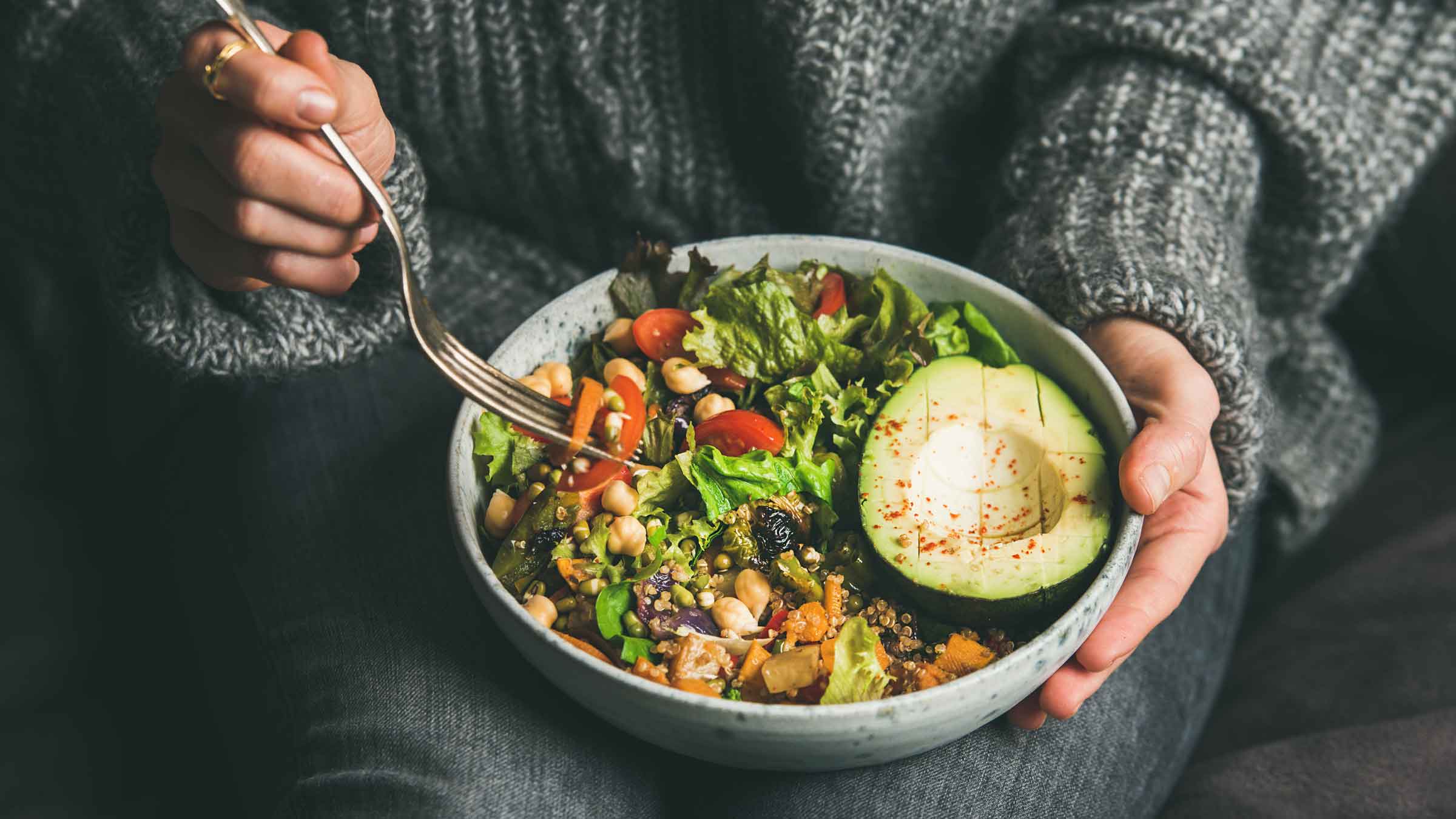
A vegan diet can be excellent for your health. Eating minimally processed foods like whole grains, fruits, vegetables, beans, nuts and seeds are great for heart health and may prevent some cancers, type 2 diabetes and strokes. Plus following a vegan diet is one of the most impactful ways you can decrease your carbon footprint. If you’re making the transition to a plant-based diet, it’ll take some planning to do it successfully and ensure you maintain adequate nutrition.
#1 Make a plan
Some people start their vegan journey with little knowledge of how to meet nutrient needs. This could be a recipe for failure and lead to nutrient deficiencies. It’s important to educate yourself on how to meet your daily protein and dietary needs. A consultation with a registered dietitian can help and is often covered by health insurance.
Start looking online for blogs and recipes that get you excited to try new foods. The library is a great place to look for vegan cookbooks.
#2 Start slow
The transition doesn’t have to happen overnight and it’s wasteful to throw out all the non-vegan food in your kitchen. Slowly replace things in your kitchen with vegan options. For example, once you run out of milk, purchase a plant-based milk. Once you run out of ranch dressing, replace it with an olive oil-based vinaigrette. There are plenty of plant-based options for those kitchen staples.
Some people start with one meal a week and build from there. Make a goal to try one or two new recipes a week to expand your vegan meal options.
#3 Embrace vegan protein
Our bodies need protein to stay healthy. Protein helps our bodies gain and maintain muscle. The amount needed varies from person to person but the best sources of protein come from plants. Soy products like tofu, soymilk and edamame as well as beans, nuts and seeds are great sources of protein. Grains and vegetables even contain protein. Most vegans can easily meet their protein needs with whole foods.
#4 Limit highly processed foods
Keep in mind that a vegan diet does not necessarily equal a healthy diet. If you choose mostly processed foods that are high in sugar and fat and low in nutrients, that is not going to benefit your health. For example, you could eat vegan cookies and pastries, white pasta, white crackers and fake chicken nuggets and be vegan, but this would not contribute to better health. Generally, those highly processed foods should be once in a while foods, not the bulk of the diet.
#5 Take a supplement
Although you can meet most nutrient needs with a vegan diet, vitamin B-12 would be an exception to this since it’s found in meat, fish and dairy products. Vitamin B-12 helps the body function properly and is necessary for nerve function, red blood cell development and metabolism. There are no reliable natural vegan sources of this so you must consume adequate fortified foods or take a supplement. The amount needed varies by age and lifestyle but the average recommended daily amount for adults is 2.4 micrograms. Adults over age 50, pregnant and breastfeeding women may have higher B-12 needs.
#6 Find a support network
It can be helpful to join a supportive group to help with ideas and get encouragement. Vegan groups are available in many communities and online. These groups can be a great place to learn about new recipes and restaurants, but not necessarily to get nutrition advice. The average person is not well versed in vegan nutrition and I’ve personally seen some horrible nutrition advice on social media.
#7 It’s not all or nothing
Reducing animal consumption can improve your health and decrease your carbon footprint even if you choose not to be 100% vegan. Some people will tell me they want to be vegan but there are a few foods they don’t want to give up like turkey on Thanksgiving or grandma’s chocolate chip cookies.
Eat what works for you and fits your needs and morals. You can still have those foods and eat an otherwise vegan diet if that’s what works for you. Let’s forget the all or nothing mentality.

Take the first steps to a healthier lifestyle
Ditch the fads and start taking real steps to improving your health with the nutrition and dietary experts from Ohio State.
Start today




